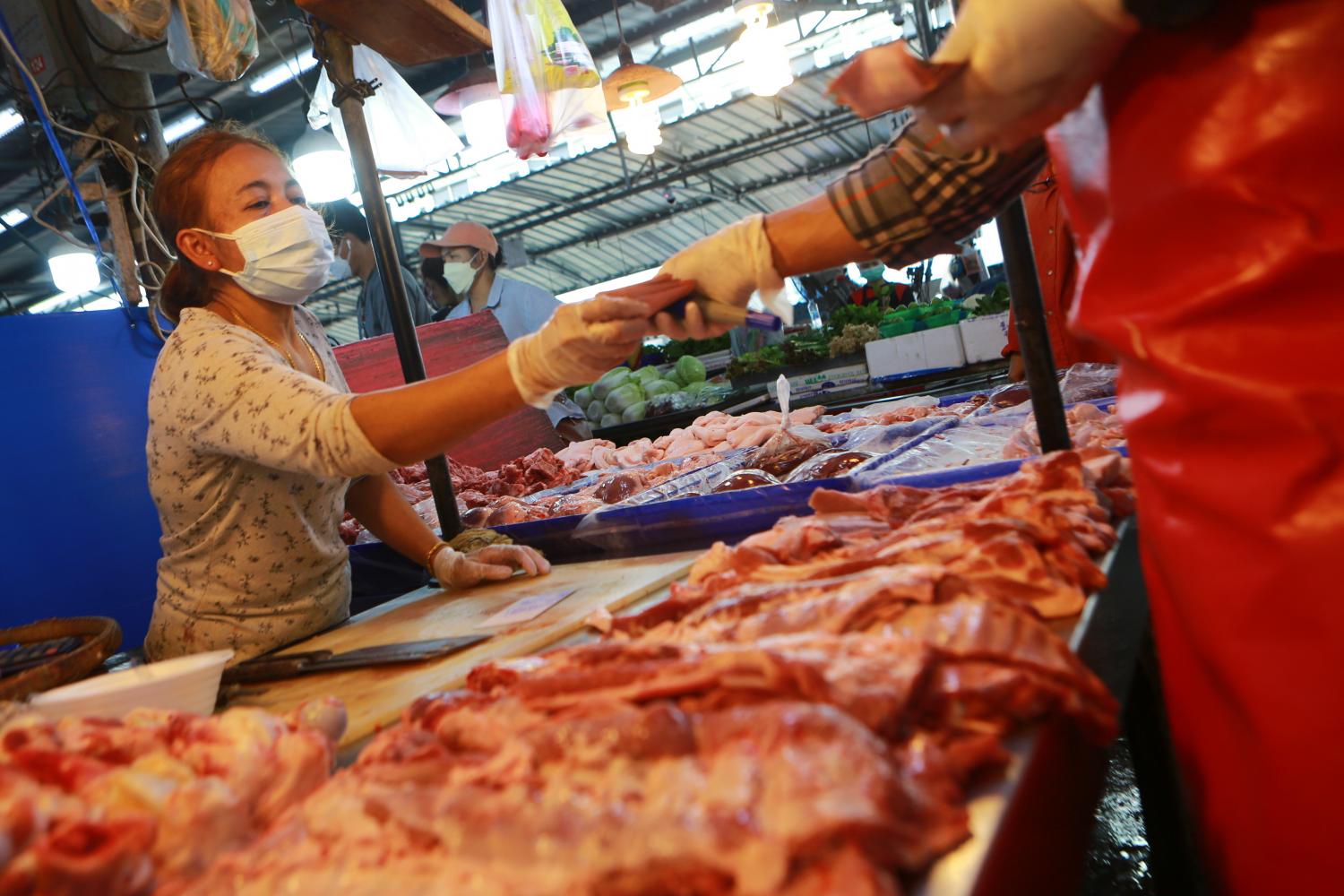
Despite mounting pressure from high oil prices, the Commerce Ministry has found the prices of certain products such as pork are declining.
Speaking after a war room meeting to supervise the prices of essential products and address inflation, commerce permanent secretary Boonyarit Kalayanamit said the overall price situation remains unchanged, though some items such as pork had dropped since last week.
Red pork prices are quoted at 164-170 baht per kilogramme, down from 187 baht per kg on Jan 30, while the prices of fresh chicken at shopping malls now average 65 baht/kg, within the range allowed by the ministry.
Mr Boonyarit said the prices of bottled palm oil for cooking are unlikely to increase and are expected to decline soon.
The prices of cooking palm oil remained relatively high for two weeks, mainly due to labour shortages in Indonesia and Malaysia because of Covid-19, he said.
Mr Boonyarit predicted prices would decrease after fresh palm output starts being released into the market beginning this month, in addition to the world's palm oil production slowly gaining.
At the end of December last year, the department reported Thailand had crude palm oil stocks of only 170,000 tonnes, which is considered low compared with the 300,000 tonnes the country deems to be a safe level for stocks.
Crude palm oil prices are now quoted at 56 baht per kg, up from 35 baht per kg in January last year.
Domestic crude palm oil prices are 12-13 baht per kg more expensive than the global market price of 44 baht, even though Thailand is a major grower of oil palm nuts.
The Agricultural Economics Office forecasts the supply of fresh oil palm nuts to be 17 million tonnes this year, up from 16 million tonnes last year.
Domestic demand is expected to be close to domestic supply.
Of the total supply, about 1 million tonnes is for edible oil production, with the remainder used for biodiesel and safety stocks.
According to Mr Boonyarit, regarding the prices of fresh vegetables, they vary based on each province.
Vegetables generally have specific production areas, while transport costs are a big variable, he said.
For general consumer goods, prices remained stable, except in the southern region where prices were higher than other regions because of the higher transport cost due to the greater distances involved.
Mr Boonyarit said at Tuesday's meeting the Commerce Ministry's inspection teams were assigned to monitor the prices of consumer goods and daily essential products such as seasonings, sauces, electrical appliances and instant noodles.
Other products under close watch include chemical products, fertilisers, pesticides, animal feed and important agricultural products, as well as factors that cause price swings such as the prices of oil and cooking gas in addition to inflation.







